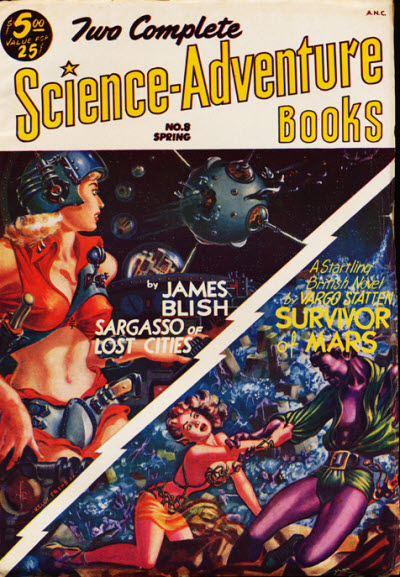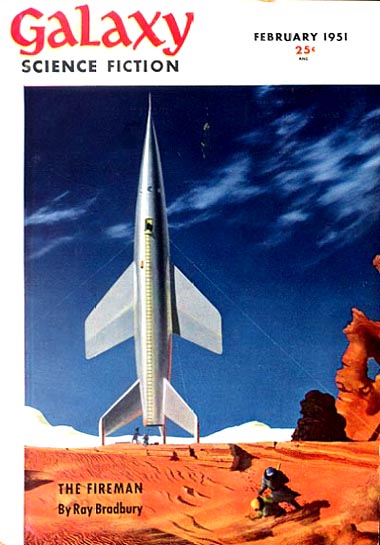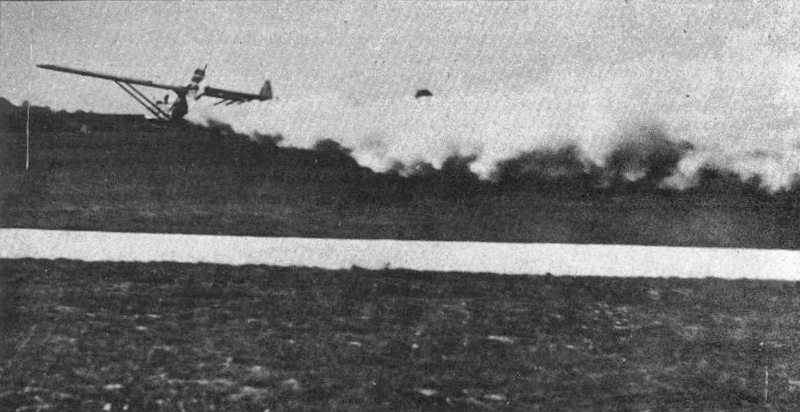|
12th World Science Fiction Convention
The 12th World Science Fiction Convention (Worldcon), also known as SFCon, was held on 3–6 September 1954 at the Sir Francis Drake Hotel in San Francisco, California, United States. The chairmen were Lester Cole and Gary Nelson. Participants Attendance was approximately 700. Guests of Honor * John W. Campbell, Jr. Awards 1954 Retro Hugo Awards The previous Worldcon (the 11th) was the first one in which Hugo Awards were awarded. The 12th Worldcon did not continue the tradition, but since the next one (the 13th), Hugo Awards have been a permanent fixture of the conventions. However, in 2004 at the 62nd World Science Fiction Convention held in Boston, a set of Retro Hugo Awards were presented to honor work that would have been Hugo-eligible had the awards been awarded in 1954: * Best Novel: ''Fahrenheit 451'', by Ray Bradbury * Best Novella: "A Case of Conscience," by James Blish * Best Novelette: "Earthman, Come Home," by James Blish * Best Short Story: "T ... [...More Info...] [...Related Items...] OR: [Wikipedia] [Google] [Baidu] |
Science Fiction
Science fiction (sometimes shortened to Sci-Fi or SF) is a genre of speculative fiction which typically deals with imaginative and futuristic concepts such as advanced science and technology, space exploration, time travel, parallel universes, extraterrestrial life, sentient artificial intelligence, cybernetics, certain forms of immortality (like mind uploading), and the singularity. Science fiction predicted several existing inventions, such as the atomic bomb, robots, and borazon, whose names entirely match their fictional predecessors. In addition, science fiction might serve as an outlet to facilitate future scientific and technological innovations. Science fiction can trace its roots to ancient mythology. It is also related to fantasy, horror, and superhero fiction and contains many subgenres. Its exact definition has long been disputed among authors, critics, scholars, and readers. Science fiction, in literature, film, television, and other media, has beco ... [...More Info...] [...Related Items...] OR: [Wikipedia] [Google] [Baidu] |
Earthman, Come Home
''Cities in Flight'' is a four-volume series of science fiction novels and short stories by American writer James Blish, originally published between 1950 and 1962, which were first known collectively as the "Okie" novels. The series features entire cities that are able to fly through space using an anti-gravity device, the spindizzy. The stories cover roughly two thousand years, from the very near future to the end of the universe. One story, "Earthman, Come Home", won a Retro Hugo Award in 2004 for Best Novelette. Since 1970, the primary edition has been the omnibus volume first published in paperback by Avon Books. Over the years James Blish made many changes to these stories in response to points raised in letters from readers. The books ''They Shall Have Stars'' ''They Shall Have Stars'' (1956) (also published under the title ''Year 2018!''), incorporating the stories "Bridge" and "At Death's End", is set in the then near future (the book begins in 2013). In this future, ... [...More Info...] [...Related Items...] OR: [Wikipedia] [Google] [Baidu] |
The War Of The Worlds (1953 Film)
''The War of the Worlds'' (also known in promotional material as ''H. G. Wells' The War of the Worlds'') is a 1953 American science fiction film directed by Byron Haskin, produced by George Pal, and starring Gene Barry and Ann Robinson. It is the first of several feature film adaptations of H. G. Wells' 1898 novel of the same name. The setting is changed from Victorian era England to 1953 Southern California. In the film, Earth is suddenly invaded by Martians, and American scientist Clayton Forrester searches for any weakness to stop them. ''The War of the Worlds'' won an Academy Award for Best Visual Effects, and went on to influence other science fiction films. In 2011, it was selected for preservation in the National Film Registry by the United States Library of Congress, who deemed it "culturally, historically, or aesthetically significant". Plot In Southern California, Dr. Clayton Forrester, a well-known atomic scientist, is fishing with colleagues when a large object ... [...More Info...] [...Related Items...] OR: [Wikipedia] [Google] [Baidu] |
Hugo Award For Best Dramatic Presentation
The Hugo Award for Best Dramatic Presentation is given each year for theatrical films, television episodes, or other dramatized works related to science fiction or fantasy released in the previous calendar year. Originally the award covered both works of film and of television but since 2003, it has been split into two categories: Best Dramatic Presentation (Long Form) and Best Dramatic Presentation (Short Form). The Dramatic Presentation Awards are part of the broader Hugo Awards, which are given every year by the World Science Fiction Society for the best science fiction or fantasy works and achievements of the previous year. The awards are named after Hugo Gernsback, the founder of the first science fiction magazine, ''Amazing Stories'', and was once officially known as the Science Fiction Achievement Award. The award has been described as "a fine showcase for speculative fiction". History The award was first presented in 1958, and with the exceptions of 1964 and 1966 was gi ... [...More Info...] [...Related Items...] OR: [Wikipedia] [Google] [Baidu] |
Chesley Bonestell
Chesley Knight Bonestell Jr. (January 1, 1888 – June 11, 1986) was an American painter, designer and illustrator. His paintings inspired the American space program, and they have been (and remain) influential in science fiction art and illustration. A pioneering creator of astronomical art, along with the French astronomer-artist Lucien Rudaux, Bonestell has been dubbed the "Father of Modern Space art". Life and career Early years Bonestell was born in San Francisco, California. His first astronomical painting was done in 1905. After seeing Saturn through the telescope at San Jose's Lick Observatory, he rushed home to paint what he had seen. The painting was destroyed in the fire that followed the 1906 earthquake. Between 1915 and 1918, he exhibited lithographs in the 4th and 7th annual exhibitions of the California Society of Etchers (now the California Society of Printmakers) in San Francisco. Bonestell studied architecture at Columbia University in New York City. Drop ... [...More Info...] [...Related Items...] OR: [Wikipedia] [Google] [Baidu] |
Hugo Award For Best Professional Artist
The Hugo Award for Best Professional Artist is given each year for artists of works related to science fiction or fantasy released in the previous calendar year. The award has been given annually under several names since 1955, with the exception of 1957. The Hugo Awards have been described as "a fine showcase for speculative fiction" and "the best known literary award for science fiction writing". The inaugural 1953 Hugo awards recognized "Best Interior Illustrator" and "Best Cover Artist" categories, awarded to Virgil Finlay and a tie between Hannes Bok and Ed Emshwiller, respectively. The Best Professional Artist award was simply named "Best Artist" in 1955 and 1956, was not awarded in 1957, and was named "Outstanding Artist" in 1958, finally changing to its current name the following year. Beginning in 1996 Retrospective Hugo Awards, or "Retro Hugos", have been available to be awarded for years 50, 75, or 100 years prior in which no awards were given. To date, Retro Hugo aw ... [...More Info...] [...Related Items...] OR: [Wikipedia] [Google] [Baidu] |
Hugo Award For Best Professional Editor
The Hugo Award for Best Professional Editor is one of the Hugo Awards given each year for science fiction or fantasy stories published or translated into English during the previous calendar year. The award is available for editors of magazines, novels, anthologies, or other works related to science fiction or fantasy. The award supplanted a previous award for professional magazine. The Hugo Awards have been described as "a fine showcase for speculative fiction" and "the best known literary award for science fiction writing". The award was first presented in 1973, and was given annually through 2006. Beginning in 2007, the award was split into two categories, that of Best Editor (Short Form) and Best Editor (Long Form). The Short Form award is for editors of anthologies, collections or magazines, while the Long Form award is for editors of novels. In addition to the regular Hugo awards, beginning in 1996 Retrospective Hugo Awards, or "Retro Hugos", have been available to be awarde ... [...More Info...] [...Related Items...] OR: [Wikipedia] [Google] [Baidu] |
Willy Ley
Willy or Willie is a masculine, male given name, often a diminutive form of William or Wilhelm, and occasionally a nickname. It may refer to: People Given name or nickname * Willie Aames (born 1960), American actor, television director, and screenwriter * Willie Allen (basketball) (born 1949), American basketball player and director of the Growing Power urban farming program * Willie Allen (racing driver) (born 1980), American racing driver * Willie Anderson (other) * Willie Apiata (born 1972), New Zealand Army soldier, only recipient of the Victoria Cross for New Zealand * Willie (footballer) (born 1993), Brazilian footballer Willie Hortencio Barbosa * Willy Böckl (1893–1975), Austrian world champion figure skater * Willy Bocklant (1941–1985), Belgian road racing cyclist * Willy Bogner, Sr. (1909–1977), German Nordic skier * Willy Bogner, Jr. (born 1942), German fashion designer and alpine skier * Willie Bosket (born 1962), American convicted murderer whose numerou ... [...More Info...] [...Related Items...] OR: [Wikipedia] [Google] [Baidu] |
Fred L
Fred may refer to: People * Fred (name), including a list of people and characters with the name Mononym * Fred (cartoonist) (1931–2013), pen name of Fred Othon Aristidès, French * Fred (footballer, born 1949) (1949–2022), Frederico Rodrigues de Oliveira, Brazilian * Fred (footballer, born 1979), Helbert Frederico Carreiro da Silva, Brazilian * Fred (footballer, born 1983), Frederico Chaves Guedes, Brazilian * Fred (footballer, born 1986), Frederico Burgel Xavier, Brazilian * Fred (footballer, born 1993), Frederico Rodrigues de Paula Santos, Brazilian * Fred Again (born 1993), British songwriter known as FRED Television and movies * ''Fred Claus'', a 2007 Christmas film * ''Fred'' (2014 film), a 2014 documentary film * Fred Figglehorn, a YouTube character created by Lucas Cruikshank ** ''Fred'' (franchise), a Nickelodeon media franchise ** '' Fred: The Movie'', a 2010 independent comedy film * '' Fred the Caveman'', French Teletoon production from 2002 * Fred Flint ... [...More Info...] [...Related Items...] OR: [Wikipedia] [Google] [Baidu] |
Wernher Von Braun
Wernher Magnus Maximilian Freiherr von Braun ( , ; 23 March 191216 June 1977) was a German and American aerospace engineer and space architect. He was a member of the Nazi Party and Allgemeine SS, as well as the leading figure in the development of rocket technology in Nazi Germany and later a pioneer of rocket and space technology in the United States. As a young man, von Braun worked in Nazi Germany's rocket development program. He helped design and co-developed the V-2 rocket at Peenemünde during World War II. Following the war, he was secretly moved to the United States, along with about 1,600 other German scientists, engineers, and technicians, as part of Operation Paperclip. He worked for the United States Army on an intermediate-range ballistic missile program, and he developed the rockets that launched the United States' first space satellite Explorer 1 in 1958. He worked with Walt Disney on a series of films, which popularized the idea of human space travel in ... [...More Info...] [...Related Items...] OR: [Wikipedia] [Google] [Baidu] |
Conquest Of The Moon
"Man Will Conquer Space Soon!" was the title of a series of 1950s magazine articles in ''Collier's'' detailing Wernher von Braun's plans for manned spaceflight. Edited by Cornelius Ryan, the individual articles were authored by such space notables of the time as Willy Ley, Fred Lawrence Whipple, Dr. Joseph Kaplan, Dr. Heinz Haber, and von Braun. The articles were illustrated with paintings and drawings by Chesley Bonestell, Fred Freeman, and Rolf Klep, some of the finest magazine illustrators of the time. The magazine articles showed earth orbit missions and lunar surface exploration, to be undertaken by large crews in the 1960/70s timeframe. Several concept vehicles were proposed and described in detail, such as a Ferry Rocket, a Space Station, and a Lunar Lander. Legacy The article series was the basis for three episodes in the ''Disneyland'' anthology series: "Man in Space," "Man and the Moon," and "Mars and Beyond." The series was expanded into three books: ''Across the Spac ... [...More Info...] [...Related Items...] OR: [Wikipedia] [Google] [Baidu] |
Hugo Award For Best Related Book
The Hugo Award for Best Related Work is one of the Hugo Awards given each year for primarily non-fiction works related to science fiction or fantasy, published or translated into English during the previous calendar year. The Hugo Awards have been described as "a fine showcase for speculative fiction" and "the best known literary award for science fiction writing". It was originally titled the Hugo Award for Best Non-Fiction Book and was first awarded in 1980. In 1999 the Award was retitled to the Hugo Award for Best Related Book, and eligibility was officially expanded to fiction works that were primarily noteworthy for reasons besides their fictional aspects. In 2010, the title of the award was again changed, to the Hugo Award for Best Related Work. In addition to the regular Hugo awards, beginning in 1996 Retrospective Hugo Awards, or "Retro Hugos", have been available to be awarded for years 50, 75, or 100 years prior in which no awards were given. The Retro Best Related Work ... [...More Info...] [...Related Items...] OR: [Wikipedia] [Google] [Baidu] |




